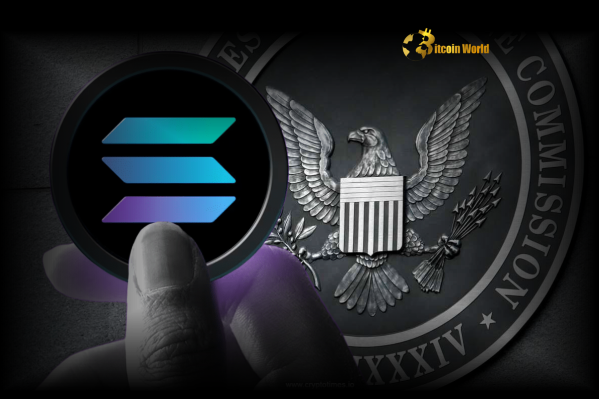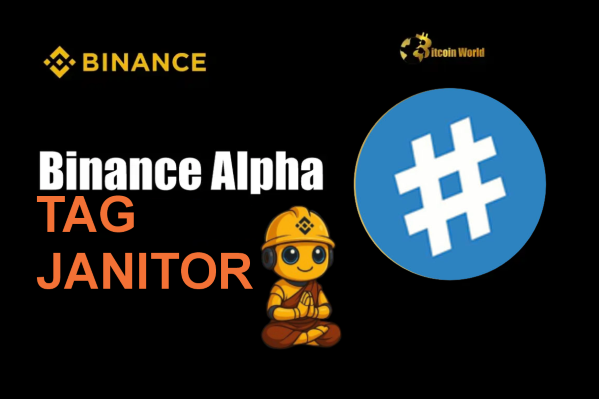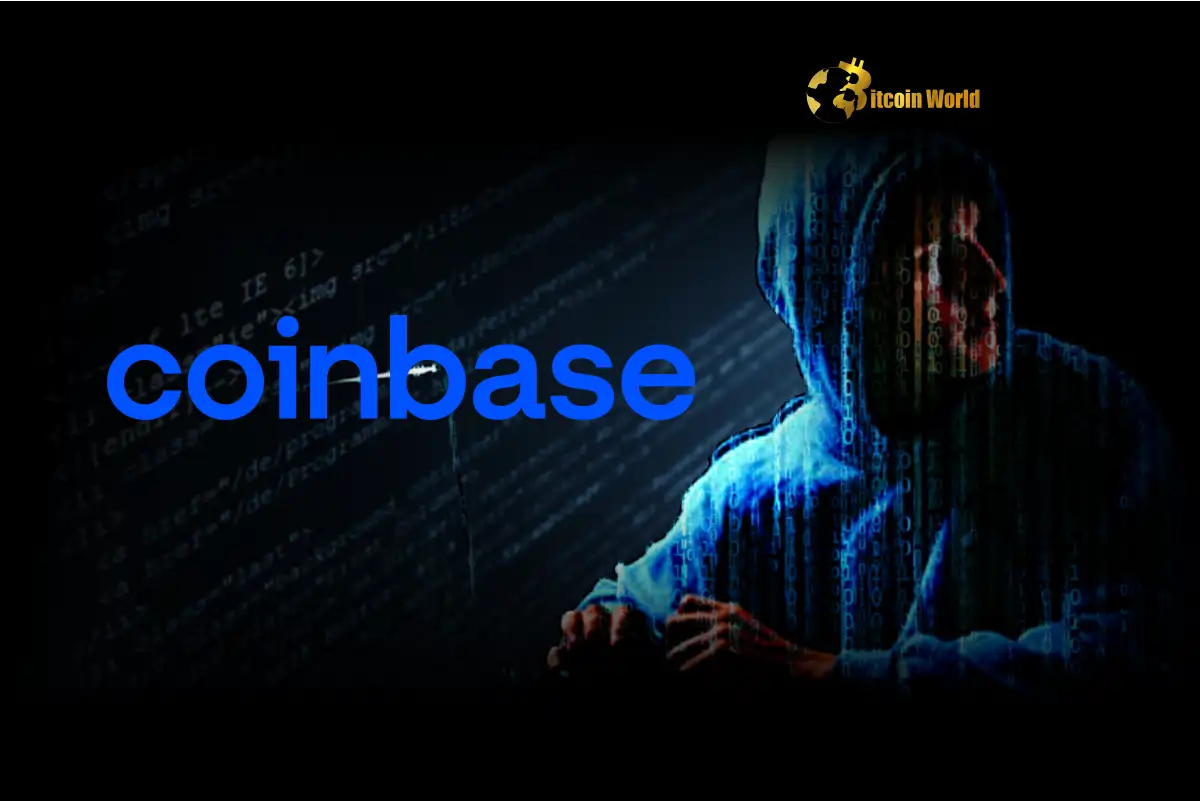BitcoinWorld

Solana Policy Institute Proposes Urgent Regulatory Shift for Decentralized Protocols to SEC
Are you following the evolving landscape of crypto regulation in the United United States? A significant development recently emerged from the Solana Policy Institute (SPI), a think tank focused on the Solana ecosystem and broader Web3 policy issues. SPI has taken a proactive step, submitting a proposal to the U.S. Securities and Exchange Commission (SEC) arguing for a crucial distinction in how decentralized protocols should be regulated.
What is the Solana Policy Institute Proposing to the SEC?
The core of the Solana Policy Institute’s proposal to the SEC is a call for regulatory clarity and, more specifically, for exemptions for truly decentralized protocols from existing securities laws. According to reports, SPI, working alongside key players like Phantom (a popular Solana wallet), Superstate, and Orca (a decentralized exchange on Solana), is making a case that the current regulatory framework designed for traditional financial intermediaries simply doesn’t fit the nature and function of decentralized systems.
Think about traditional finance: you have brokers who execute trades on your behalf and custodians who hold your assets. These entities have significant control and responsibility, and the regulations governing them reflect that. The SPI argues that decentralized protocols operate fundamentally differently. They are often automated systems governed by code and community, without a central intermediary performing these traditional broker or custodian functions in the same way.
The proposal suggests that non-custodial blockchain infrastructure, which is a hallmark of many decentralized protocols, should be regulated under a distinct approach. This acknowledges the reality that users interacting with these protocols typically maintain control of their own private keys and assets, a stark contrast to leaving funds with a centralized entity.
Why Does US Crypto Policy Need This Nuance?
The current regulatory environment in the United States often attempts to fit novel blockchain technologies into existing boxes designed for traditional financial instruments and services. This can create significant challenges and uncertainty for innovators building decentralized applications.
Here’s why the SPI’s push for a nuanced US crypto policy is important:
- Innovation: Applying outdated rules to new technology can stifle development and adoption of potentially beneficial decentralized applications.
- Clarity: A lack of clear guidelines creates uncertainty, making it difficult for projects to operate legally and for investors to understand risks.
- Global Competitiveness: Other jurisdictions are developing tailored frameworks for digital assets. The U.S. risks falling behind if its regulatory approach isn’t adapted.
- Consumer Protection (Applied Appropriately): SPI’s argument isn’t necessarily against consumer protection, but rather that the *methods* of protection should align with the actual risks and structures of decentralized systems.
The proposal aims to start a dialogue with the SEC to help them understand these fundamental differences and consider regulatory pathways that support responsible innovation while still addressing potential risks.
Understanding Decentralized Protocols: More Than Just Code?
So, what exactly are decentralized protocols? In simple terms, they are sets of rules or standards that govern how participants interact on a blockchain network without needing a central authority. Examples include decentralized exchanges (DEXs) like Orca, lending protocols, and protocols for managing digital identities or assets.
The argument for exemption often hinges on several key characteristics:
- Non-Custodial: Users typically retain control of their private keys and funds. The protocol facilitates interactions but doesn’t hold assets for the user.
- Permissionless: Anyone can typically interact with the protocol without needing specific approval from a central gatekeeper.
- Immutable (Often): Once deployed, the core logic of the protocol is difficult or impossible for a single entity to change. Governance might exist, but it’s often distributed among token holders.
- Transparent: Transactions and protocol logic are often publicly auditable on the blockchain.
SPI and its collaborators are essentially telling the SEC: look at how these systems *actually* work. They don’t have a CEO, a board of directors making trading decisions for users, or a central vault holding everyone’s money. Regulating them like a traditional brokerage firm doesn’t make practical sense and could inadvertently harm the technology itself.
What Are the Potential Benefits and Challenges of This Approach?
Should the SEC consider the SPI’s proposal, there could be significant benefits for the crypto ecosystem. Regulatory clarity could unlock further investment and development in the U.S. It could also provide a clearer path for users to interact with decentralized finance (DeFi) applications with more confidence, knowing there’s a tailored regulatory perspective acknowledging their unique structure.
However, the path forward is fraught with challenges:
- Defining “Decentralized”: Regulators often struggle with where to draw the line between truly decentralized systems and those that retain significant central control. This definition will be key and highly debated.
- Regulatory Appetite: The current SEC under Chair Gary Gensler has often emphasized applying existing rules to crypto. Shifting to a new, tailored approach for decentralized protocols might face internal resistance.
- Enforcement Concerns: Regulators may worry about how to enforce rules or protect consumers if there isn’t a central entity to pursue.
- Complexity: Understanding the technical nuances of various protocols requires significant effort from regulators.
The SPI’s proposal is an important step in bridging this gap, providing regulators with a framework from the industry’s perspective.
Actionable Insights: What Does This Mean for You?
While this proposal is a high-level policy discussion between the Solana Policy Institute and the SEC, it has implications for anyone involved in crypto, particularly those using or building on decentralized protocols.
- Stay Informed: Follow regulatory developments closely. The outcome of these discussions will shape the future of DeFi in the U.S.
- Understand the Tech: Educate yourself on how decentralized protocols work, especially the non-custodial aspect. This helps you understand the policy arguments being made.
- Engage (If Possible): For builders and developers, consider engaging with policy discussions or supporting organizations like SPI that advocate for clear and appropriate regulation.
This dialogue highlights the ongoing tension between existing regulatory frameworks and rapidly evolving technology. The SPI’s proposal is a direct attempt to influence US crypto policy towards a more nuanced and potentially more innovation-friendly stance for decentralized systems.
Summary: A Critical Juncture for Decentralized Finance and US Crypto Policy
The proposal from the Solana Policy Institute to the SEC represents a critical effort to shape the future of crypto regulation in the United States. By arguing that decentralized protocols should not be shoehorned into regulations designed for traditional financial intermediaries, SPI and its partners are pushing for a more appropriate and innovation-conscious US crypto policy. While the outcome remains uncertain, this dialogue is essential for providing clarity, fostering responsible growth, and ensuring that the regulatory framework for digital assets is fit for purpose in the 21st century. The conversation between entities like the Solana Policy Institute and the SEC will undoubtedly continue to be a major factor influencing the development and adoption of decentralized technologies.
To learn more about the latest crypto regulation trends, explore our article on key developments shaping US crypto policy and institutional adoption.
This post Solana Policy Institute Proposes Urgent Regulatory Shift for Decentralized Protocols to SEC first appeared on BitcoinWorld and is written by Editorial Team





